How AI Enhances Hiring Processes to Identify Top Talent
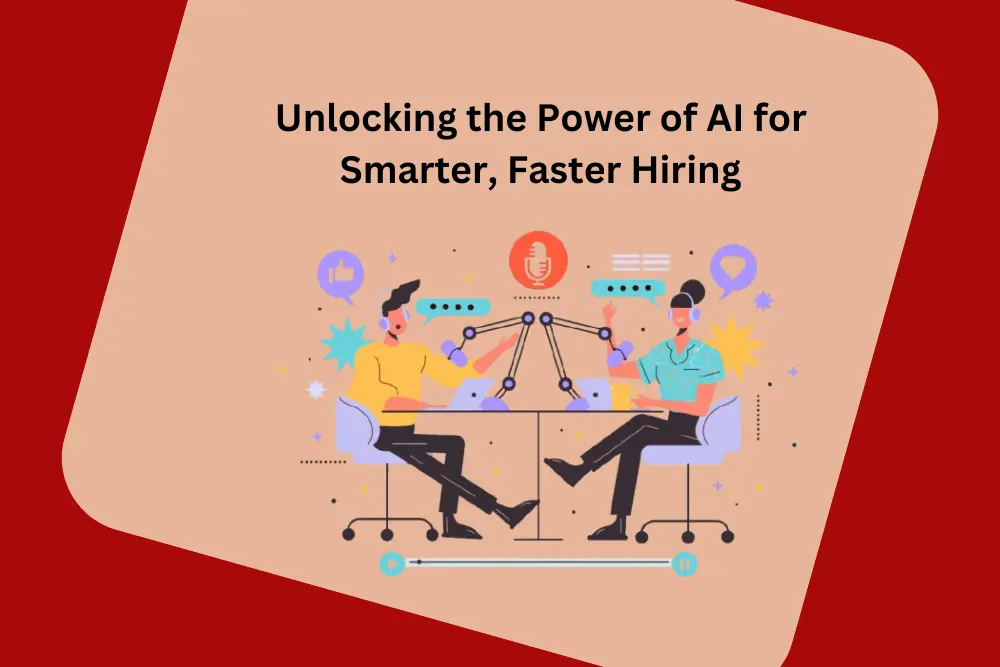
Artificial intelligence (AI) is revolutionizing recruitment by streamlining processes and delivering better hiring outcomes. You can rely on AI to automate repetitive tasks like resume screening, saving time and reducing costs. For example, companies using AI recruitment tools engage 22% more candidates, improving efficiency. AI also identifies top talent with precision by analyzing skills, experience, and cultural fit. It eliminates biases, ensuring diverse and qualified hires. Predictive Hiring: How AI Can Identify Top Talent? demonstrates how AI predicts candidate success, helping you make data-driven decisions that align with business goals.
The Role of AI in Recruitment
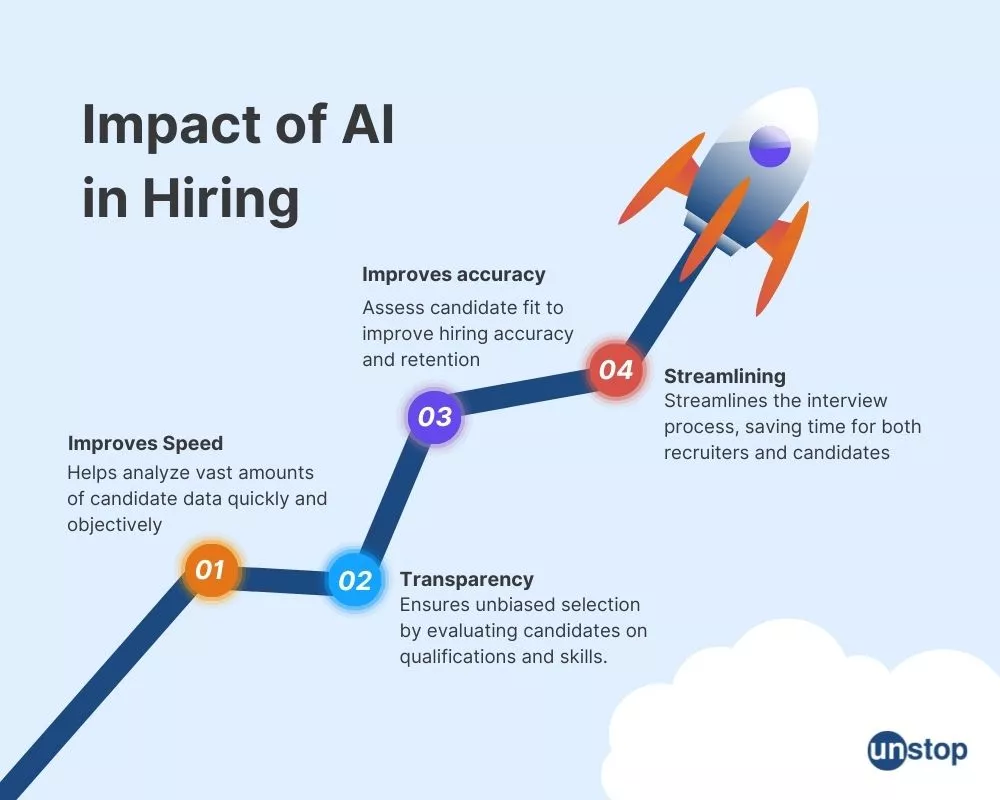
What is AI in Hiring?
AI in hiring refers to the use of artificial intelligence technologies to streamline and enhance recruitment processes. It automates repetitive tasks like resume screening and interview scheduling, saving you time and effort. AI also improves decision-making by providing accurate and objective evaluations of candidates. By reducing unconscious bias, AI helps you build a more diverse and inclusive workforce. Additionally, it creates precise job descriptions and matches candidates to roles based on their skills and potential performance.
How AI Integrates into the Recruitment Process
AI integrates seamlessly into recruitment workflows, making your hiring process more efficient and effective. It automates administrative tasks like scheduling interviews and taking notes, allowing you to focus on strategic decisions. AI-powered tools scan multiple platforms to source candidates and build dynamic talent pools, ensuring you reach a diverse range of applicants. During screening, AI quickly evaluates resumes and shortlists top candidates. It also uses predictive analytics to assess candidates’ skills and cultural fit, helping you make data-driven hiring decisions.
Application Area | Description |
|---|---|
Admin delegation | Automates repetitive tasks like note-taking and interview scheduling. |
Candidate sourcing and talent pooling | Scans platforms to create diverse talent pools. |
Screening and interviewing | Speeds up resume screening and shortlisting. |
Candidate assessment and selection | Uses predictive analytics to enhance decision-making. |
Candidate engagement and experience | Improves communication with real-time, personalized interactions. |
Key Technologies in AI Recruitment
Machine Learning
Machine learning enables AI systems to learn from data and improve over time. It helps you identify patterns in candidate behavior and predict their success in specific roles. For example, companies like Unilever use AI tools to analyze traits of high-performing employees and match candidates accordingly.
Natural Language Processing (NLP)
NLP allows AI to understand and process human language. It helps you analyze resumes, cover letters, and even interview responses. Tools like L’Oréal’s AI-enabled interview system evaluate candidates’ vocabulary and responses to provide deeper insights into their suitability for a role.
Predictive Analytics
Predictive analytics uses data to forecast outcomes. In recruitment, it predicts candidate performance and retention rates. For instance, IBM Watson analyzes personality traits to match candidates to roles and predict their success within the company. This ensures you hire individuals who align with your organization’s goals.
Applications of AI in Hiring
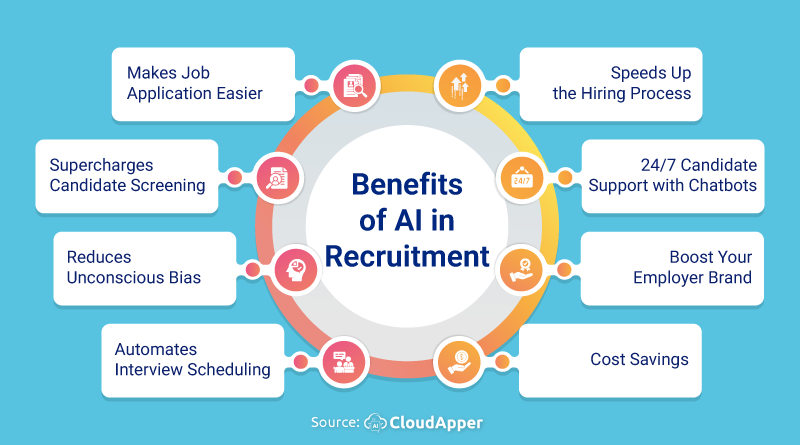
Resume Screening and Shortlisting
Automating Resume Parsing
AI-powered tools simplify resume parsing by extracting key information like education, experience, and skills. These tools process hundreds of resumes in minutes, saving you time and effort. For example, AI aggregates data from multiple sources, organizing it efficiently for review. This automation reduces the time-to-hire and ensures you can focus on strategic hiring decisions.
Benefit | Description |
|---|---|
Cost savings | Automating the resume review process reduces labor costs and avoids costly hiring mistakes. |
Unbiased decision-making | AI assesses candidates based on objective criteria, minimizing unconscious bias in hiring. |
Better candidate experience | Faster screening processes enhance the candidate experience and improve employer branding. |
Enhanced scalability | AI tools can easily scale hiring efforts, handling increased workloads without sacrificing quality. |
Consistency and accuracy | AI evaluates resumes based on the same criteria, ensuring accurate and consistent assessments. |
Identifying Keywords and Skills
AI identifies keywords and skills in resumes, matching them to job descriptions. This fit scoring ranks candidates based on their suitability, streamlining the selection process. By focusing on relevant qualifications, you can ensure that only the most qualified candidates move forward.
AI enhances candidate sourcing by aggregating data from various platforms.
Fit scoring ranks candidates based on job requirements, saving time.
Candidate quality improves as AI matches resumes to specific roles.
Candidate Assessment and Matching
AI-Powered Skill Assessments
AI evaluates candidates' skills through automated assessments. These tools analyze responses to determine proficiency levels, ensuring you select the best talent. Studies show AI improves grading precision by up to 30%, enhancing the accuracy of candidate evaluations.
Behavioral and Cultural Fit Analysis
AI tools analyze behavioral traits and cultural fit using psychometric evaluations. For example, NLP examines language patterns in interviews to assess alignment with company values. This ensures you hire candidates who not only perform well but also thrive in your organization.
Predictive Hiring: How AI Can Identify Top Talent?
Predicting Candidate Performance
AI uses predictive analytics to forecast candidate performance. By analyzing past recruitment data, AI identifies patterns that predict success in specific roles. For example, AI algorithms assess skills and cultural fit, improving retention rates. This ensures you hire candidates who align with your business goals.
AI tools analyze vast data to predict candidate fit for roles.
Predictive analytics forecasts performance and attrition levels.
Digital Recruiting 3.0 reduces time-to-hire by 60% and enhances candidate quality by 40%.
Reducing Turnover with Data Insights
AI reduces turnover by providing insights into employee satisfaction and engagement. For example, AI recruitment assistants engage 22% more candidates, improving retention. By predicting attrition levels, you can make informed hiring decisions and build a stable workforce.
Evidence Type | Description |
|---|---|
Baseline Comparison | Establishing a baseline for turnover rates and comparing post-implementation metrics to assess effectiveness. |
Employee Feedback and Surveys | Collecting employee feedback through surveys to gauge satisfaction and engagement with AI interventions. |
Continuous Evaluation and Adjustment | Ongoing evaluation of AI initiatives to ensure alignment with workforce needs and challenges. |
Chatbots and Candidate Engagement
Streamlining Communication
AI-powered chatbots simplify communication between you and candidates by automating repetitive tasks. These tools handle inquiries, schedule interviews, and provide updates, ensuring a seamless hiring process. For example, companies like Mastercard and Nestlé have achieved remarkable results by integrating chatbots into their recruitment workflows.
Company | Outcome Description | Measurable Result |
|---|---|---|
IKEA | Improved candidate conversion rates and increased applications | 10% improvement in conversion rates, doubled monthly applications |
Mastercard | Automated interview scheduling, enhancing candidate experience | 5,000 interviews scheduled in 24 hours, 900% more candidate profiles, 11% higher conversion rates |
L’Oreal | Reduced time spent on application processing | 40-minute reduction in average application time |
Nestlé | Accelerated recruiting process through automated scheduling | 600% increase in interviews, 25,000 scheduled interviews, reduced 8,000-hour process |
Chatbots also provide instant responses to candidate inquiries, keeping them informed about their application status. This real-time communication reduces delays and ensures candidates remain engaged throughout the hiring process. By automating these tasks, you can focus on strategic recruitment decisions while maintaining a high level of candidate satisfaction.
Enhancing Candidate Experience
AI chatbots significantly improve the candidate experience by offering quick and efficient interactions. Candidates appreciate the 24/7 availability of chatbots, which ensures they receive timely updates and answers to their questions. This constant engagement helps maintain their interest and reduces the chances of losing top talent during the hiring process.
Chatbots answer common questions about the hiring process, saving time for both you and the candidates.
They eliminate unconscious biases by focusing on skills and qualifications, creating a fairer selection process.
Candidates benefit from a streamlined application process, which enhances their overall perception of your organization.
Top-performing organizations using AI recruitment assistants engage 22% more candidates. This increased engagement not only improves the quality of hires but also strengthens your employer brand. By automating repetitive tasks like screening CVs and sending interview invitations, chatbots allow your team to concentrate on building meaningful connections with potential hires.
Benefits of AI in Recruitment
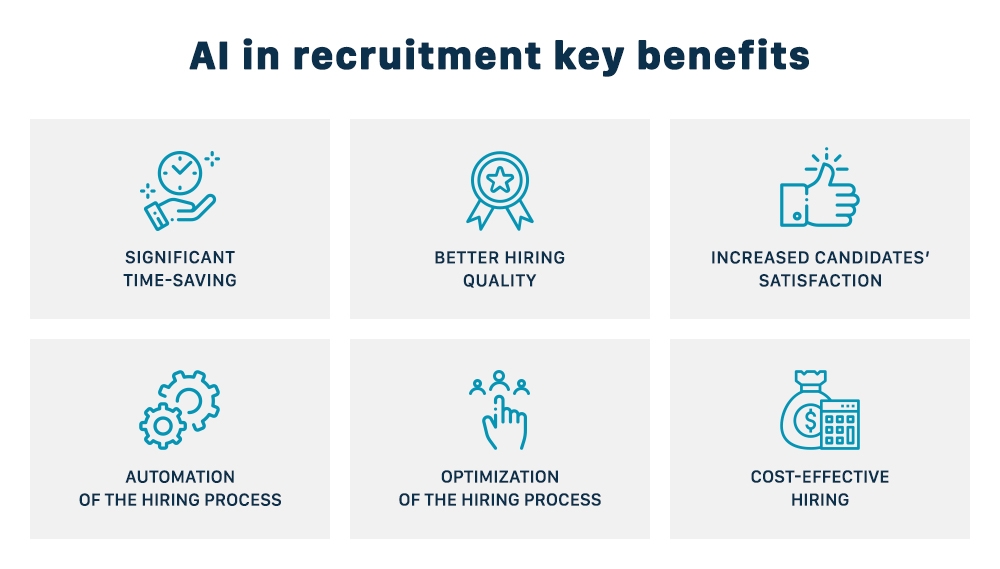
Increased Efficiency and Speed
AI transforms recruitment by accelerating processes that traditionally take weeks. You can reduce the hiring cycle from six weeks to just two weeks with AI-powered tools. These systems automate repetitive tasks like resume screening and interview scheduling, allowing you to focus on strategic decisions.
AI tools streamline workflows, saving valuable time.
Automated systems handle large volumes of applications efficiently.
Faster hiring processes improve your ability to secure top talent before competitors.
By leveraging AI, you can eliminate bottlenecks in recruitment and ensure a smoother experience for both candidates and hiring teams.
Cost Reduction for Employers
AI-driven recruitment systems offer significant cost-saving benefits. They reduce the need for extensive manpower and optimize resource allocation. For example, AI tools cut hiring costs by 50% and decrease the time spent on screening by 60%.
Statistic | Impact |
|---|---|
Reduction in hiring costs | 50% |
Decrease in time spent on screening | 60% |
These savings allow you to allocate your budget toward other critical areas, such as employee training or retention programs.
AI enhances hiring efficiency, reducing operational expenses.
Automated processes minimize errors, avoiding costly hiring mistakes.
By adopting AI, you can achieve a more cost-effective recruitment strategy without compromising quality.
Improved Candidate Quality and Fit
AI improves the quality of hires by matching candidates to roles based on their skills, experience, and cultural fit. It evaluates metrics like first-year performance, success ratios, and hiring manager satisfaction to ensure better outcomes.
Metric | Description |
|---|---|
Quality of hire | Reflects the first-year performance of a candidate, indicating hiring success. |
Success ratio | Measures the proportion of hires who perform well, showing the effectiveness of the selection process. |
Hiring manager satisfaction | Indicates how well new employees meet expectations, correlating with candidate performance. |
Candidate job satisfaction | Assesses whether candidates' expectations align with reality, reducing turnover risks. |
Time-to-hire | Measures recruitment efficiency, with AI tools aimed at reducing this time. |
Candidate quality | Evaluates how well AI matches candidates to roles, improving retention and performance rates. |
AI ensures you hire individuals who excel in their roles and contribute to your organization’s success. By focusing on data-driven insights, you can build a workforce that aligns with your goals and values.
Enhanced Diversity and Inclusion Efforts
AI-powered recruitment tools play a crucial role in promoting diversity and inclusion in hiring. These tools help you identify and reduce unconscious biases that often influence traditional hiring processes. By focusing on objective criteria like skills and qualifications, AI ensures fairer evaluations of candidates. This approach allows you to build a workforce that reflects a wide range of perspectives and experiences.
AI also expands your talent pool by sourcing candidates from diverse backgrounds. It scans multiple platforms and identifies individuals who may have been overlooked in conventional recruitment methods. This ensures you reach a broader audience and attract top talent from underrepresented groups. For example, Intel revamped its recruitment process with AI, significantly improving the quality of hires.
Unilever experienced a 16% increase in diverse hires within a year of implementing AI in its screening process. Similarly, AI tools have helped organizations reduce turnover rates by ensuring better cultural alignment. These tools analyze behavioral traits and values, matching candidates to roles where they are more likely to thrive.
AI-powered tools have led to:
A more diverse pool of candidates.
Reduced unconscious bias in hiring decisions.
Improved diversity and inclusion outcomes.
By leveraging AI, you can create a more inclusive hiring process that values merit and potential. This not only enhances your organization’s reputation but also fosters innovation and collaboration. A diverse workforce brings unique ideas and perspectives, driving better business outcomes.
The Future of AI in Recruitment
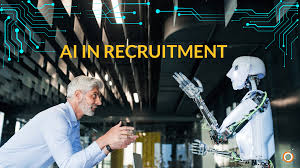
Emerging Tools and Technologies
Advanced AI-Powered Platforms
AI-powered platforms are becoming more sophisticated, offering tools that go beyond basic automation. These platforms now integrate predictive analytics and advanced candidate matching to help you make better hiring decisions. For example, they can analyze vast datasets to identify patterns in candidate behavior, ensuring you select individuals who align with your company’s goals. Top-performing organizations have reported engaging 22% more candidates using AI recruitment assistants, showcasing the effectiveness of these tools in managing large applicant pools.
Real-Time Candidate Analytics
Real-time analytics is transforming how you evaluate candidates. AI tools now provide instant insights into candidate performance, engagement, and potential fit. This allows you to make data-driven decisions quickly. For instance, predictive analytics can forecast a candidate's success in a role, reducing the risk of turnover. These tools also enhance the candidate experience by offering real-time feedback, which keeps applicants engaged throughout the process.
Trends in AI-Driven Recruitment Strategies
Hyper-Personalized Hiring Experiences
AI enables you to create personalized hiring journeys for candidates. By analyzing data, AI tailors communication and job recommendations to match individual preferences. This approach not only improves the candidate experience but also increases the likelihood of securing top talent. Recent trends show a growing emphasis on hard skills in job requirements, with AI playing a crucial role in identifying these skills during the hiring process.
AI for Internal Talent Mobility
AI is also reshaping internal talent management. It helps you identify employees ready for new roles or promotions by analyzing their skills and performance. This ensures you retain top talent and reduce hiring costs. Predictive analytics plays a key role here, offering insights into employee potential and career paths. Companies adopting AI for internal mobility report improved employee satisfaction and reduced turnover rates.
The Role of Human Recruiters in an AI-Driven World
While AI automates many tasks, human recruiters remain essential. You bring empathy, judgment, and relationship-building skills that AI cannot replicate. For example, AI can screen resumes, but you ensure cultural fit and fairness in hiring decisions. Continuous assessment of AI tools is also crucial to maintain equity and accuracy. Training programs can help you understand AI better, fostering a collaborative relationship between technology and human judgment.
AI has transformed recruitment by automating tasks, improving efficiency, and enhancing decision-making. However, balancing AI with human judgment ensures fairness and inclusivity. For example:
Unilever's AI-driven hiring increased diversity by 16%, showing how AI can promote inclusivity when paired with human oversight.
A case study revealed that only 20% of women were shortlisted compared to 80% of men, highlighting the need for human intervention to address biases.
You can achieve optimal hiring outcomes by combining AI's precision with your ability to evaluate candidates personally. This approach creates a recruitment process that is not only efficient but also fair and ethical.
FAQ
What is the main advantage of using AI in recruitment?
AI saves time by automating repetitive tasks like resume screening and interview scheduling. It also improves decision-making by analyzing data to match candidates with roles. This ensures you focus on strategic hiring decisions while increasing efficiency and accuracy.
Can AI completely replace human recruiters?
No, AI cannot replace human recruiters. It handles repetitive tasks and provides data-driven insights, but you bring empathy, judgment, and cultural understanding. Combining AI with human oversight ensures fairness, inclusivity, and better hiring outcomes.
How does AI help reduce bias in hiring?
AI evaluates candidates based on objective criteria like skills and experience. It removes factors like gender or race from decision-making. Regular audits of AI tools ensure fairness and help you build a diverse workforce.
Is AI recruitment suitable for small businesses?
Yes, AI tools are scalable and cost-effective, making them ideal for small businesses. They streamline hiring processes, reduce costs, and improve candidate quality. Many AI platforms offer flexible pricing to suit smaller budgets.
How can you ensure AI tools remain ethical?
You should regularly audit AI systems to identify and correct biases. Use diverse datasets for training and maintain transparency in decision-making. Combining AI with human oversight ensures ethical and fair recruitment practices.
See Also
Strategies for Successfully Identifying Candidates with ATS Tools
Navigating ATS: Your Path to Discovering Exceptional Talent
Ten Strategies to Enhance Your Recruitment Using ATS
Optimize Your Recruitment Process with MokaHR's Talent Solutions
From recruiting candidates to onboarding new team members, MokaHR gives your company everything you need to be great at hiring.
Subscribe for more information

